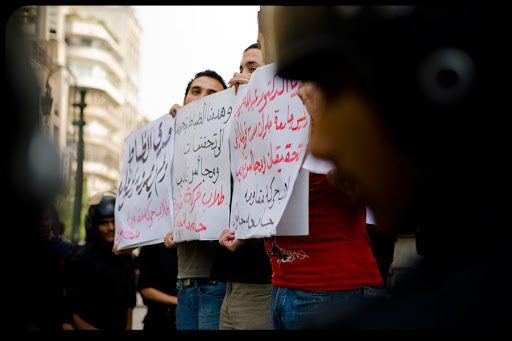The Acton Institute recently held a conference in Rome entitled “Faith, State, and the Economy: Perspectives from East and West.” The speakers included Cardinal Joseph Zen Ze-kiun, bishop emeritus of Hong Kong; Rev. Professor Martin Rhonheimer, professor of ethics and political philosophy at the Pontifical University of the Holy Cross; Dr. Samuel Gregg, director of research at the Acton Institute; and Archbishop Maroun Lahham, auxiliary bishop and vicar of the Latin Patriarch of Jerusalem for Jordan.
Below is an interview conducted by the Acton Institute with Archbishop Lahham on the origins and meaning of the Arab Spring.
In the birthplace of the Arab Spring, in Tunisia, a fruit-and-vegetable vendor was so tired of all the abuse and interference of government that he immolated himself. How the social welfare policies inhibited or facilitated religious activity in that country?
The Arab Spring events have never had religious sights, at the beginning. It is important to make it clear. Tunisia was the birthplace of the revolution, and now the situation is quite better, people are starting to live again, and they can speak again. We have to keep in mind that until recent times people could not even pronounce the name of the President, and even less the name of his wife. Now people are demonstrating, organizing strikes, obviously sometimes they overpass limits, but it seems quite normal given the recent years’ circumstances. Ultimately, Tunisia remains the laboratory of democracy in Arab countries, and the constitution that was recently voted is a real masterpiece of objectivity and progress.
A subplot of the Arab Spring was at the beginning the endangerment of the region’s Christians. How this could be connected to the people’s desire to enjoy the benefits of meaningful political freedom and economic prosperity?
I disagree with this statement. Revolutions in the Arab world were not meant to be against the Christians. The origin has never been religious; it was no more than social, economic, and civic. Afterwards Islamist movements entered and affected the presence of Christian people, but it was not the Arab revolution’s purpose: it is only a consequence, that should disappear, it is only temporary: the Islamists who seized control in Tunisia and Egypt suffered a heavy defeat, therefore the Islamist political movement is keeping a low profile and I hope Arab societies, after these four years of incredible tumult, will finally become free and then more flexible toward Christians.
A crucial issue in all the Arabic countries – except Lebanon, Tunisia and Algery – is that the religious freedom is understood only as freedom of worship. It doesn’t exist the freedom of conscience, of choosing his/her own belief, and in countries like Maroc or Iraq the conversion to Christianity is punishable by the death penalty. How the different “Churches of Calvary” strive to change this situation?
Unfortunately these churches can’t do anything. This law is based on Muslim constitutions. And as long as the legislation is based on Sharia, nothing will change: Islam forbids with extreme firmness the transition from Islam to another religion. The solution can only be in a long and difficult evolution of the Arab-Muslim societies in civil societies, where religious freedom is also understood as freedom of conscience.
Tunisia, Egypt and Libya went trough the process and challenges of a constitutional reform. Do you think that International Community should always be guided by the principle of non-interference in the domestic affairs of a sovereign state or rather should work in guaranteeing some elements of a democratic constitution (freedom of religion, freedom of speech, economic freedom)?
I think International Community should intervene. But we have to be aware of the fact that nowadays Western powers are losing credibility, because on the pretext of wanting democracy and religious freedom for these countries, there are often political and international interests that have nothing to do with the values they advocate. We saw it in Syria: Syria is a peaceful and flourishing country, where Christians lived peacefully, then suddenly they decided to overthrow Assad … Well, Assad is not St. Francis, that is true, but the alternative that has been proposed is a crazy group of Islamists who cut people’s heads. And we have clearly very little confidence in Western motivations, when they intervene in Arab crises.

